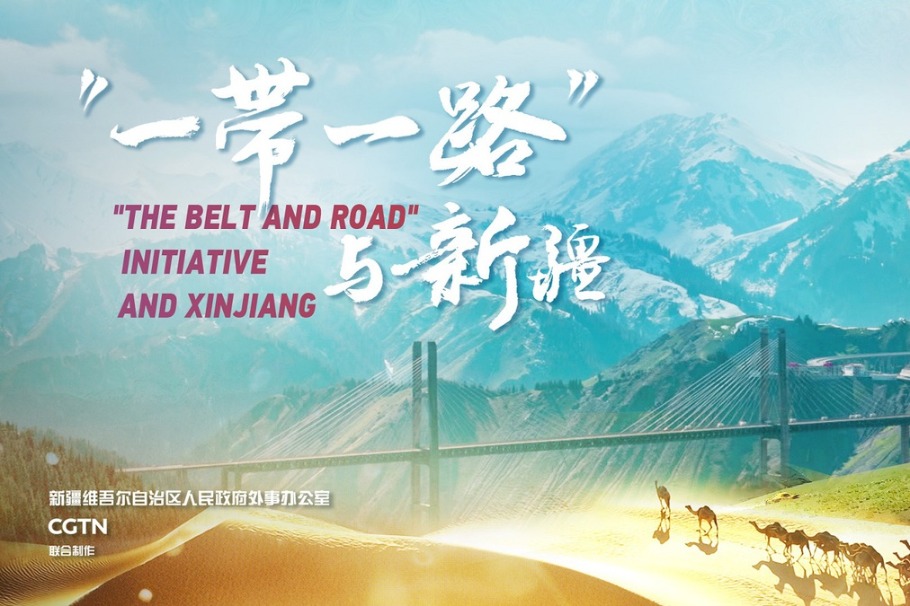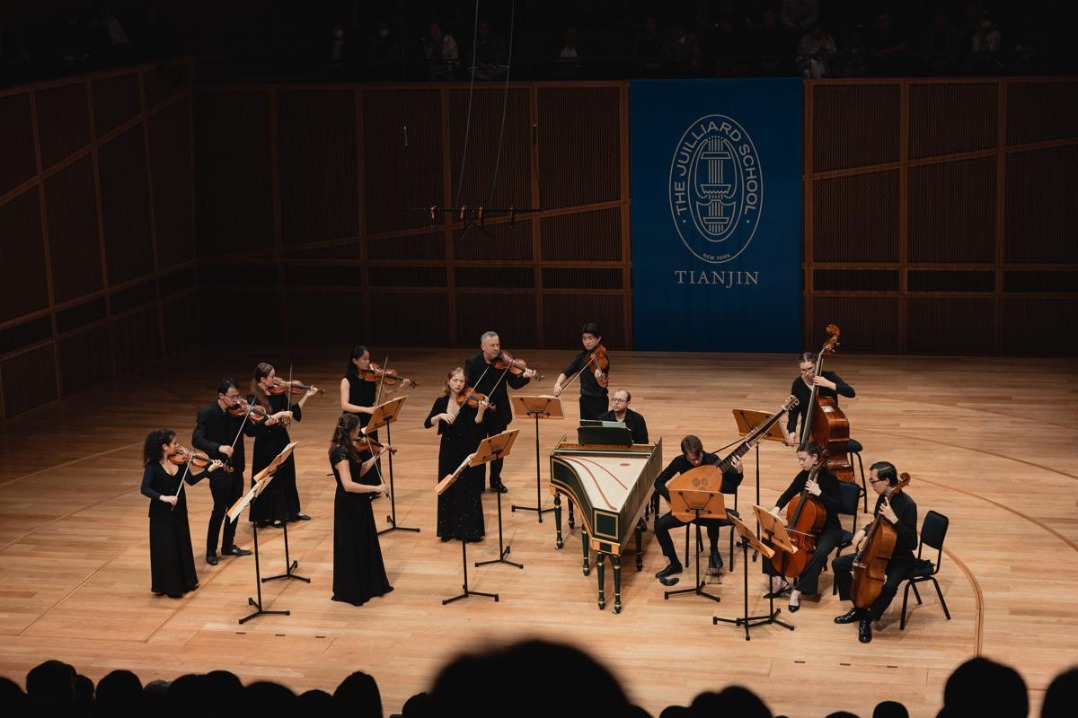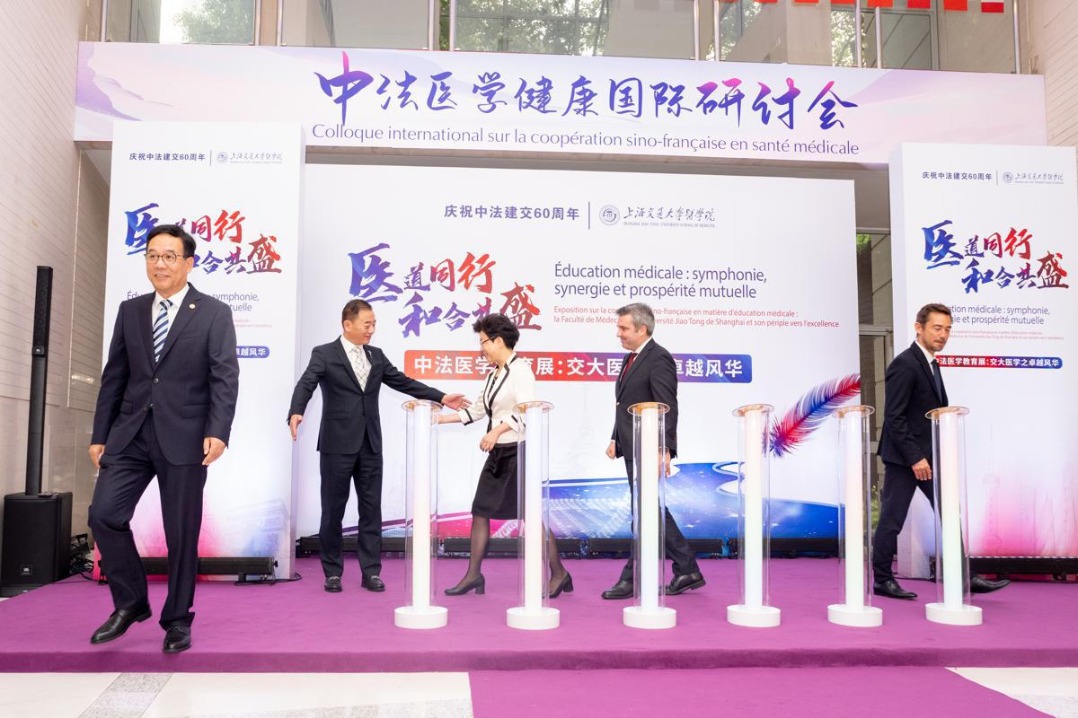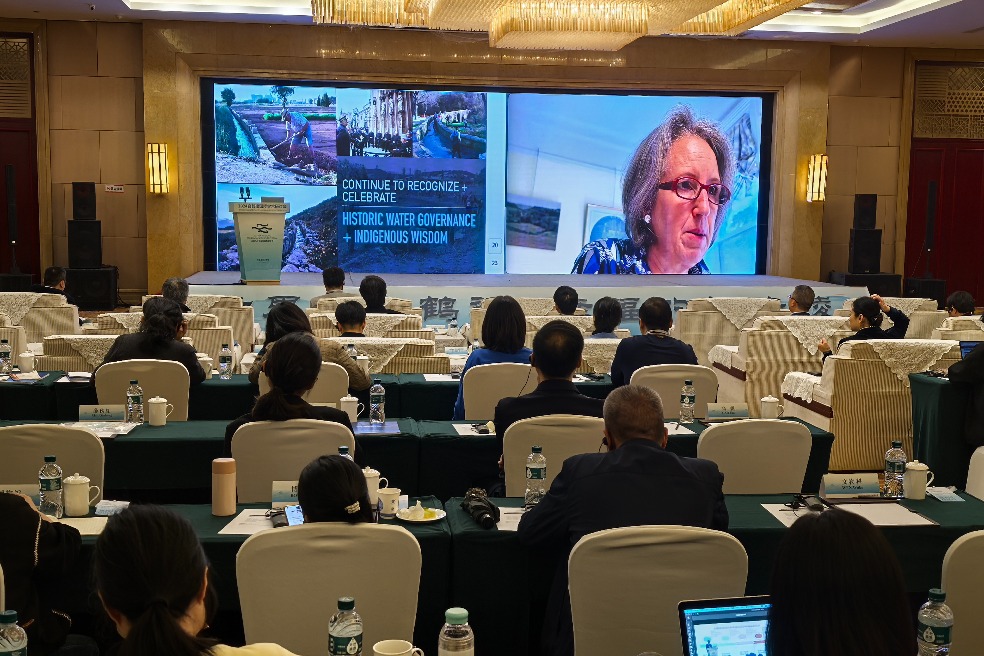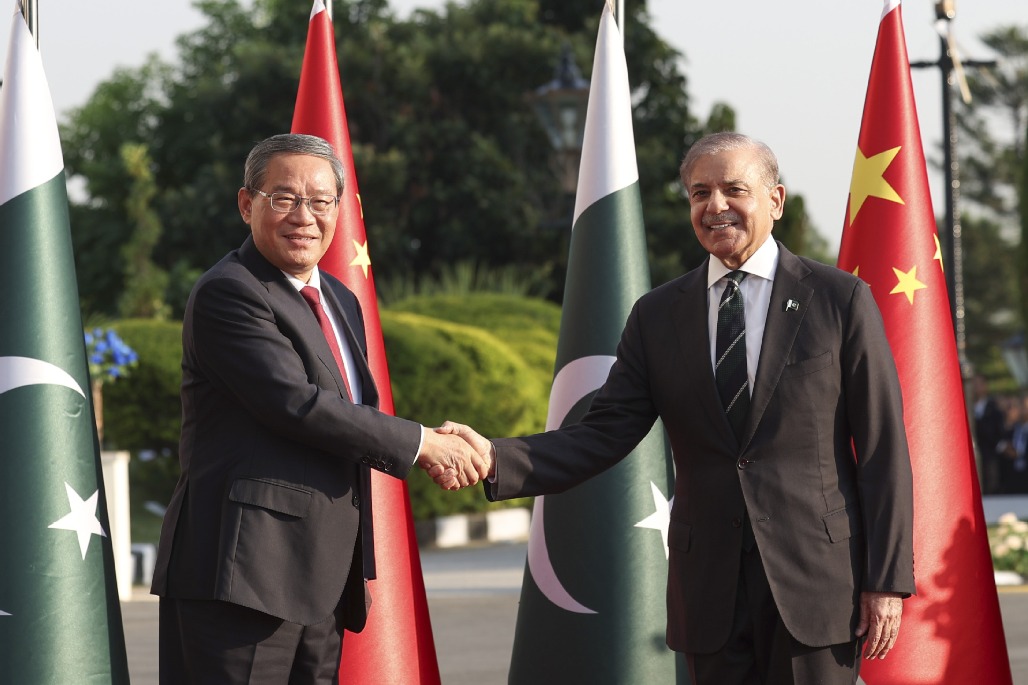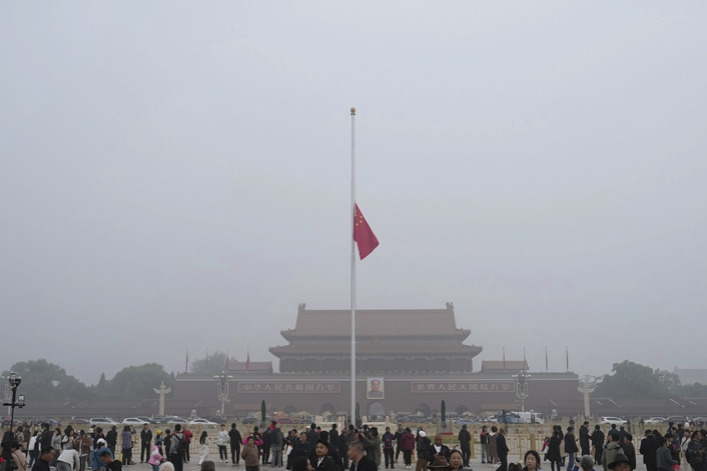Post-2000 young people redefine work, leisure
Tech-savvy generation takes innovative, independent approach to jobs, life


Young entrepreneur Weng Ziyan, 23, begins her day not with the blaring sound of an alarm clock, but with the gentle vibration of her smartphone. Before she's left her bed, she has already scrolled through her social media platforms, catching up on overnight updates from her friends, influencers and new contacts.
Her morning routine at her home in the heart of Yanji, Jilin province, is a seamless blend of technology and convenience. Her soybean milk machine, set via an app the night before, brews her a fresh beverage. She adds dried jujube and black sesame seed to make the drink more healthy.
Meanwhile, Weng's already set up a work space in a corner of her balcony equipped with a comfortable ergonomic chair and a dual-monitor computer.
With a quick swipe, she checks her calendar, updates her to-do list on a project management app, and makes her first phone call of the day.
Weng recently obtained a license to open a fruit shop. It's called Cookie's Fruit Shop, and is located not far from her home. Renovations started recently, and the young woman is not only sharing her ideas with the construction workers, but also helping them paint the walls.
"I like the feeling of being involved in the renovation, though it's physically exhausting. I have a clear vision about how the small fruit shop will look, and I want to make it a reality with my own hands," she said, adding she hopes to open the shop by the end of the year.
Weng is an interior design graduate from a university in Shanghai, and believes it is not difficult to take her ideas from paper to reality.
She has taught herself how to run a business through courses offered by online education platforms. Weng's access to a vast array of online resources allows her to pursue diverse interests and acquire new skills at her own pace. She also makes videos and runs her own social media platforms, hoping to expand the shop's fan base and reach out to potential customers.
Generations apart
Weng's life is a seismic shift from the way her civil servant parents lived when they were in their early twenties. Now aged in their early fifties, they grew up and worked during an era when technology was far less omnipresent.
Their mornings began with analog alarm clocks and reading newspapers, while their workdays unfolded in office buildings where face-to-face interactions were common.
For Weng's father, the office was a structured environment where professional boundaries were clearly delineated and employees were expected to work from "nine to five".
"I don't like the traditional working environment," said Weng. "I had an internship in Shanghai and I found that being in the office is frustrating, such as the phone ringing constantly, people getting too close when talking to you, and people not cleaning the microwave when they spill food."
She also didn't like her boss bullying the employees and taking credit for their work, and the extra unpaid working hours. "I don't know whether I would find a regular job and work in an office again. But now I want to focus on developing my own business," said Weng.
Many of her classmates have also become independent entrepreneurs, reflecting a broader trend toward work-life integration rather than the work-life balance that characterized her parents' professional lives. She values the autonomy of remote work and the ability to design her own workspace — a far cry from the rigid office structures her parents' generation experienced.
"They don't understand my career choice," Weng said of her parents. "They expected me to find a stable job, just like them, but that's not what I wanted.
"Despite their doubts about my career choice, I want to try everything new and interesting. I don't know where this small fruit shop is heading, but I am doing my best to make it unique."
Born innovators
The post-2000 generation, characterized by growing up with the internet, has attracted the attention of marketers and academics for they way they are redefining work and leisure in the digital age.
A total of 76.4 percent of people born after 2000 want to rely on the internet to generate income, breaking the strong traditional bond between work and location, according to the 2022 Employment Relationship Trends Report released in August by the Peking University's National School of Development and Zhilian Recruitment, one of the major recruitment platforms in China.
"These young people live in second-and third-tier cities, earn salaries comparable to those in first-tier cities, and combine travel, residency, work and leisure, enjoying a lifestyle that blends work with leisure," the report said. "They place a high premium on working in environments that align with their interests. Despite challenging job markets, many are unwilling to sacrifice personal passions for employment. They often weigh job offers carefully, considering both the job's alignment with their interests and its potential for personal fulfillment."
Lin Bin, 24, teaches Chinese at a primary school in Haikou, Hainan province. He graduated from Changsha University in 2022 with a major in Chinese language and literature, and had planned to become a tour guide as he also had a major in tourism.
"But the pandemic forced me to change my plan. To make a living, I returned to Haikou, my hometown, and applied for a job at a primary school," he said.
Despite his youth and lack of experience, last year he was assigned to become the head teacher of a class of fourth grade students. He has to communicate frequently with the students' parents, who are much older than him.
"Parents' reactions to young teachers with less experience can vary widely. Some are supportive, appreciating the fresh ideas, enthusiasm, and innovative teaching methods that younger teachers often bring. Other parents might have concerns about the lack of experience, preferring teachers with a proven track record and established classroom management skills," said Lin.
He has resorted to social media platforms to get inspiration from other young teachers. Lin launched his own channel about his work life on popular platforms including Xiaohongshu and Douyin. To his surprise, in addition to making friends with other young teachers he has attracted a large fan base.
"I learned to make videos when I was at university. It was for my girlfriend, who is very beautiful, and I wanted to make videos and post them online to show off," said Lin.
"With the videos I made to record my job, I have gained nearly 240,000 followers and one of my videos has been viewed more than 50,000 times," said Lin.
His youthful innovation is a far cry from his own school days. He concedes that he wasn't a good student and his favorite class was physical education.
His teachers back then were much older than he is today and very experienced, he said. "They looked serious and rarely smiled, which made me very nervous. But I don't want to be a teacher like them. I want to make friends with my students and win their trust," said Lin.
Over the past two years he has found great joy in teaching fourth and fifth grade students.
He usually starts his class by introducing a popular new phrase to the students, such as nei juan (involution), and qingxu jiazhi (emotional value). Combined with examples his students can easily comprehend, Lin often gets warm feedback from the students, which he finds rewarding. "I am grateful that the school supports young teachers and gives us opportunities to try our new teaching methods," he said.
Different drum
When it comes to relationships and family dynamics, young people today are also veering from tradition.
Lin, like many of his peers, values personal development and career aspirations over milestones such as early marriage and homeownership. Young people are now marrying and starting a family later in life, prioritizing their careers, personal growth, and financial stability, before settling down.
"My parents were born after 1970 and they adhered to a more conventional timeline," Lin said.
"Many of their peers were married by their late twenties and began raising families shortly after. This traditional trajectory reflected societal expectations and norms that have since evolved. My parents never push me to get married and I have no plan to get married until I'm 30 years old," said Lin. He lives with his girlfriend who is pursuing a master's degree.
A report about young people's perspectives on marriage and relationships released by the social networking app Soul and the Shanghai University's School of Sociology and Political Science in July, reflected the changing attitudes.
"Those born after 1985, 1990, and 1995 have been deeply influenced by traditional values during their upbringing," it said. "For them, marriage is not only a personal milestone but also an important symbol of assuming family and social responsibilities."
However, those born in the 2000s, and who grew up in the information age, have a stronger sense of self and autonomy.
"They hold a positive attitude toward marriage, hoping it will center around personal development and self-worth," the report said.
This generation's distinctive attitudes and choices are creating waves in how trends evolve and how businesses innovate, it said. With their self-assured yet laid-back demeanor, young people are setting new standards in both their professional and personal lives.
"Their impact is a clear indication that the post-2000 generation is not just participating in the world, but actively reshaping it, heralding a new era of style and success," the report said.
Zhang Tongdao, a professor of documentary studies at Beijing Normal University, said: "Due to the country's economic development and improved family conditions, the post-2000 generation has more choices and opportunities to realize their dreams than in the past. These young people have a good self-assessment ability. By observing society and trends, they actively adapt and improve themselves. They are more likely to achieve significant success, surpassing previous generations".
Zhang spent 12 years working on a five-episode documentary titled Born in 2000. He recorded the changing lives of people born after 2000, from their early days in kindergarten to their lives as young adults.
In the internet age, the post-2000 generation has an innate ability to apply new technologies, the professor said.
"They have a broad perspective and global experience, allowing them to interact with the world on an equal footing. Their strong independence means they don't need others to make decisions for them, and conflicts may arise if parents insist on making choices for them."
Zhang believes that as more young people from the post-2000 generation join the workforce, a trend is emerging where the changes initiated by the younger generation impact the wider social group. The work styles, approaches, and skills of this generation may refine, adjust, or even overturn traditional models, the professor said.
"Once their creative potential is unleashed, it is believed that they will bring a fresh new face to the country," he said.

















